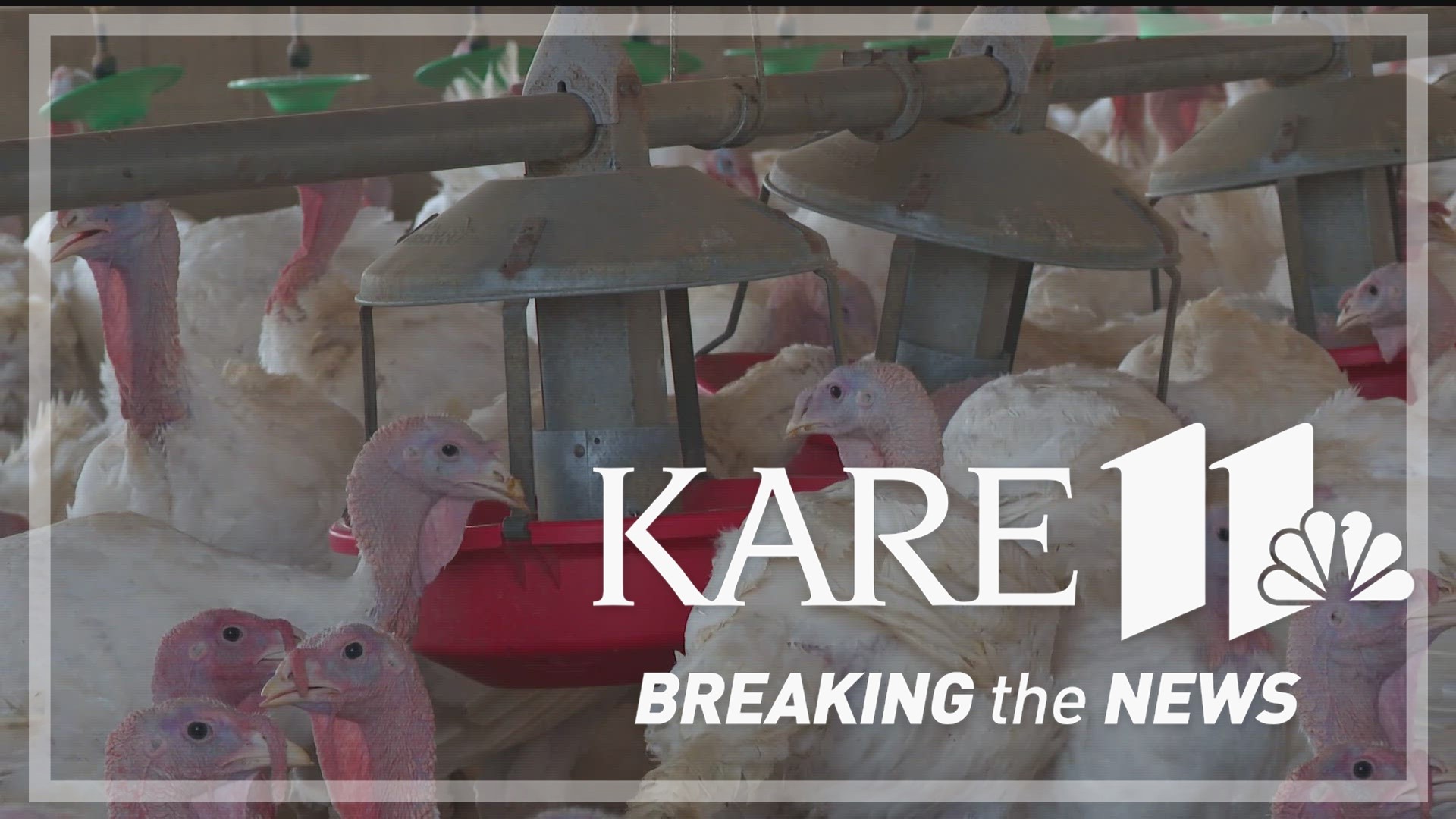NORTHFIELD, Minn. — Since 1996, the National Turkey Federation says the Indian government has imposed a 30% tariff on imported frozen turkeys.
“It effectively priced you out of the market,” turkey farmer John Zimmerman says.
Zimmerman owns a 2nd generation turkey farm in Northfield where he raises tens of thousands of turkeys every year. He is also the vice chair of the National Turkey Federation.
“We haven’t had fair access to the Indian market in over 20 years,” Zimmerman says.
Industry leaders say very little turkey has been exported to India over the years, but they’re hoping that will change now that the Indian government has agreed to lower its tariff on frozen turkey to 5%.
Minnesota Senator Amy Klobuchar says the Indian and United States governments have been negotiating lower food tariffs on several products and she fought hard to get turkey included on that list.
“I actually spoke with our United States Trade Representative Katherine Tai. I brought her to the Minnesota State Fair. We talked turkey. I also went to India earlier in the year to make this case,” Klobuchar says.
The final list of foods came out, which included frozen turkey, frozen duck, blueberries and cranberries.
Minnesota will see the greatest impact with turkey.
Minnesota frequently ranks 1st in the nation for turkey production. The Minnesota Turkey Growers Association represents 600 turkey farmers across the state who grow around 40 million turkeys a year.
The Association says it's hard to predict the impact these lower tariffs will have on the industry, but farmers say having better access to a new market with 1.4 billion people could be huge.
"India is a very large and growing market with a burgeoning middle class. We're pretty excited,” Zimmerman says.
However, the growth won't happen overnight. Most of the turkey that is produced in the United States is consumed by Americans.
"About ten percent of the United States turkeys are exported, primarily to Mexico,” Zimmerman explains.
And introducing a new protein to a new country isn't easy.
"I'm sure they're aware of turkey and a certain amount of their population has had it, but to make it widespread will take a fair amount of time. There has to be a marketing campaign and the Indian people have to try turkey and hopefully enjoy it."
Zimmerman says a lot of countries also don't have the infrastructure and cold storage that's needed to bring in millions of pounds of product.
It could take a while to build that up, and even cooking the turkey will be a problem.
"Because a lot of foreign countries don't have an oven like we do in the United States. So, how can they cook a whole bird? Well, they can't. So, providing products such as ground turkey and turkey breasts, turkey cuts, turkey tenderloins and more ready to cook products will be important.”
Despite these hurdles Zimmerman says he's still excited about this new opportunity. It might take a few years, but he has high hopes for his farm and hundreds of other farms across the state.
"You know, we don't know how it will all play out, but just having access to a very large population, a group of people who can access our product is a wonderful opportunity for us."
Watch more Breaking The News:
Watch all of the latest stories from Breaking The News in our YouTube playlist:

